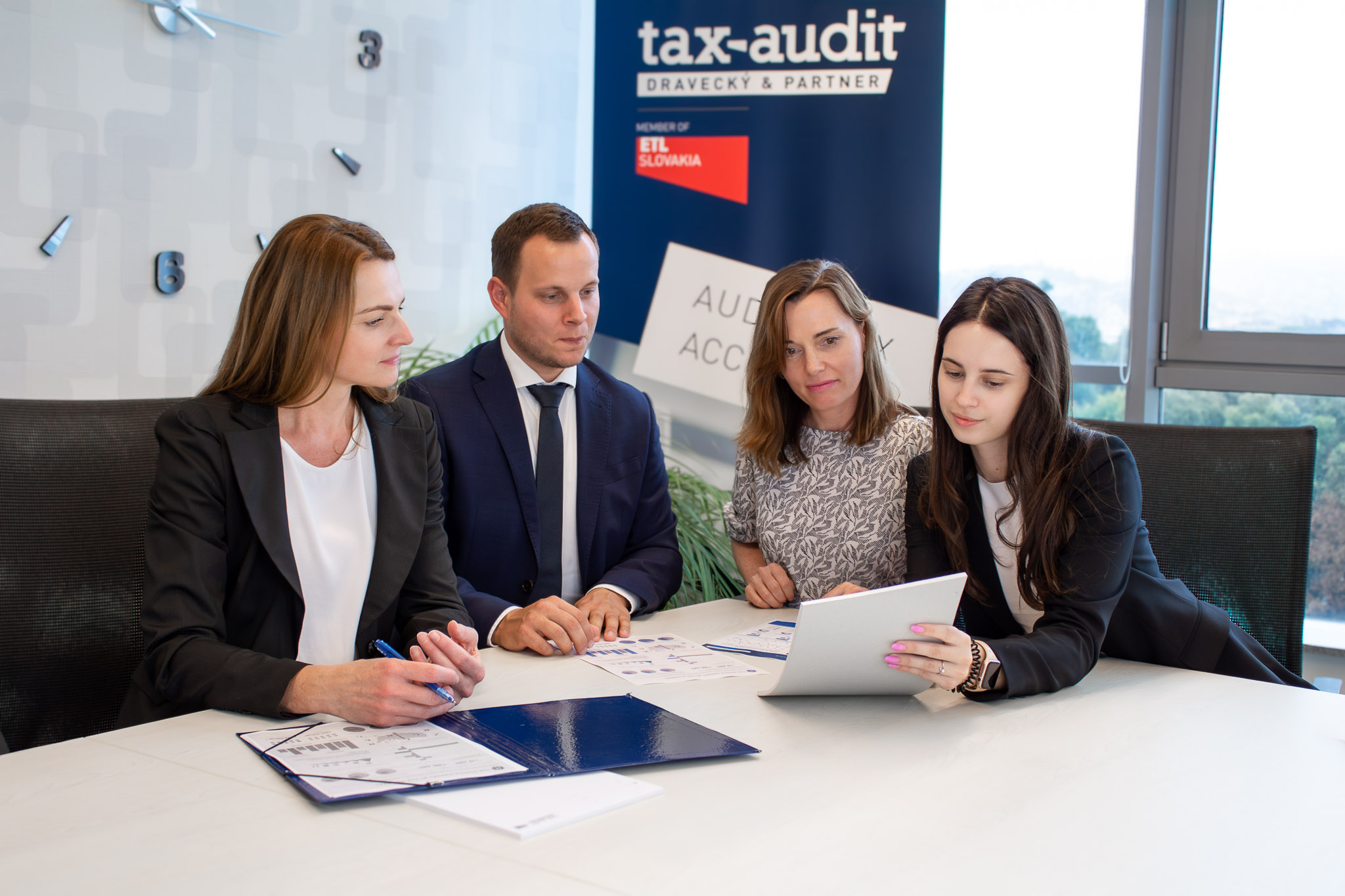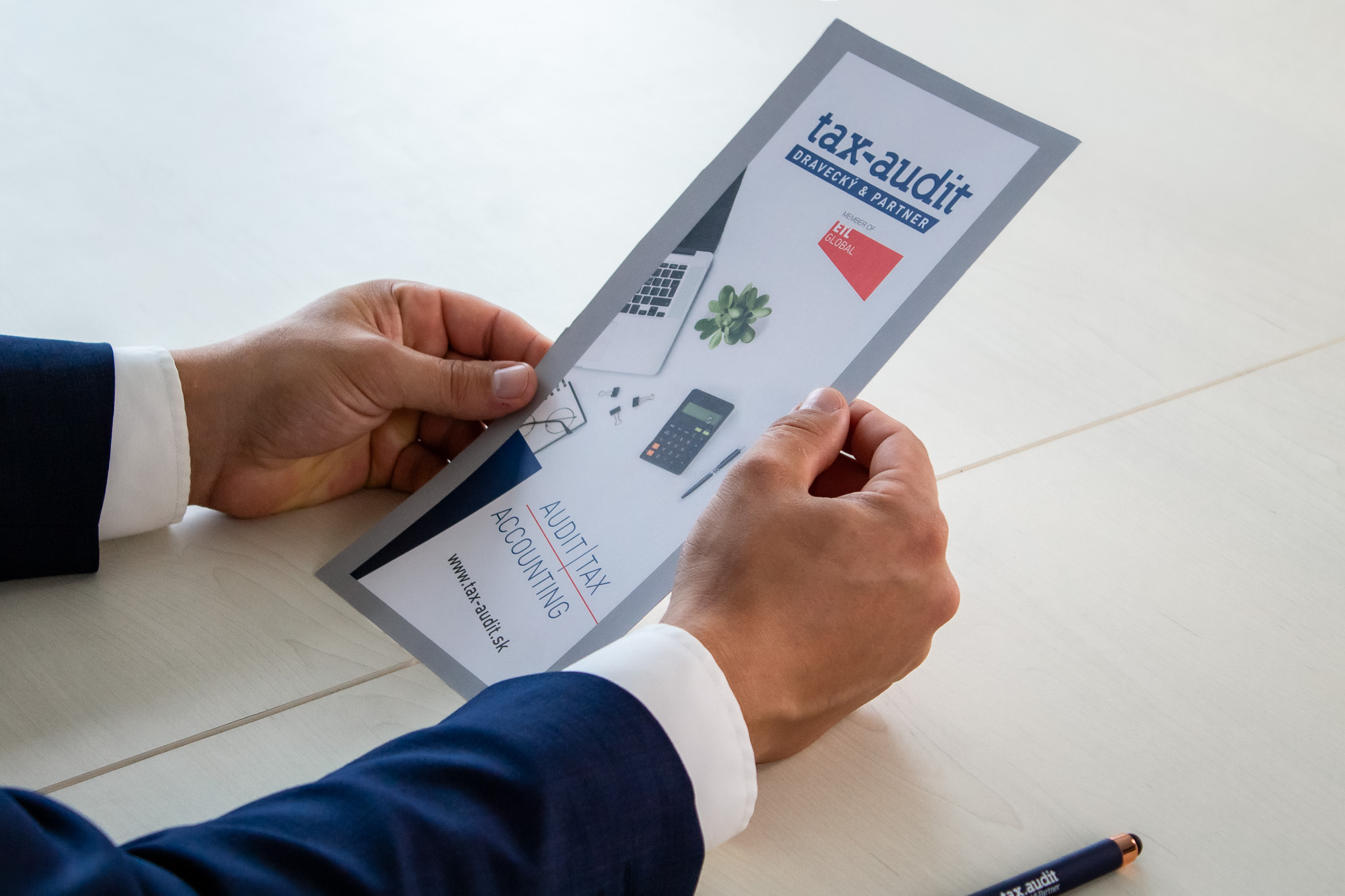Effective January 1, 2025, significant changes to the Value Added Tax (VAT) Act, as per Act No. 222/2004 Coll., as amended, will come into force. These changes include adjustments to VAT rates, rules for taxpayer registration, and obligations related to issuing documents. This article outlines the most important updates that will be of interest not only to businesses but also to ordinary consumers.
1. Changes to VAT Rates
Znížená sadzba sa meníz 10% na 5% - táto sadzba sa bude vzťahovať na:
Reduced VAT rate lowered from 10% to 5%, applying to:
- Selected basic foodstuffs.
- Certain medicines and medical devices.
- Textbooks, books, e-books, newspapers.
- Restaurant and catering services (excluding alcohol).
- Accommodation services.
- Entry to sports events and fitness centers.
- Goods and services provided by social enterprises.
- Delivery, renovation, and reconstruction of real estate (state rental housing).
Goods and services listed in Annex No. 7, points 2 and 3, and services in Annex No. 7a, point 2.
New reduced VAT rate of 19%, applying to:
- Selected foodstuffs (e.g., salt, vinegar, fish, mineral water, sugary drinks).
- Electricity.
- Beverage services (excluding alcoholic beverages).
- Goods and services listed in Annex No. 7, point 1, and services in Annex No. 7a, point 1.
Standard VAT rate increased from 20% to 23%, applying to:
- All other goods and services not covered under the reduced rates above.
2. Simplified Invoices from eKasa Systems (Receipts)
It will be possible to issue a simplified invoice, i.e., a receipt from a cash register, if the price of goods or services, including tax, does not exceed €400. Similarly, receipts issued by fuel dispensers for unattended fuel refueling, where the payment is made using an electronic payment instrument, must not exceed €400, including tax.
Previously, the limit for receipts from cash registers was:
- For cash payments: up to €1,000, including tax.
- For payments via other instruments substituting cash: up to €1,600, including tax.
Please note that for purchases of goods or services exceeding €400, an invoice must be requested, as receipts above this amount will no longer be claimable for VAT deductions from January 1, 2025.
3. Significant Changes in VAT Registration Rules, Registration Procedure, and Turnover Calculation for Taxable Persons
If a taxable person reaches a turnover of €50,000 during the current calendar year, they will become a VAT payer from January 1 of the following calendar year (unless otherwise specified – if they exceed €62,500, they become a VAT payer upon the supply of goods by which they exceed the €62,500 turnover in the current calendar year).
The obligation to submit a VAT registration application is within 5 working days from the day the turnover is exceeded (previously, it was by the 20th day of the calendar month following the month in which the turnover was exceeded).
It is possible to indicate in the registration application that the taxable person wishes to become a VAT payer by the supply by which they exceeded the €50,000 turnover (the VAT ID becomes valid on the day the person becomes a VAT payer).
Turnover calculation – from January 1, 2025, it will be calculated for the calendar year (no longer for 12 calendar months).
4. Significant Changes in Conditions for the Registration of a Foreign Person (§ 5)
Adjustments (clarifications) of circumstances under which a foreign taxable person becomes a VAT payer:
- The supply of goods or services that are subject to tax (excluding cases explicitly defined in § 5, paragraph 2).
- Receipt of payment before the delivery of goods or services.
- Acquisition of goods in Slovakia from another EU member state that are subject to tax (excluding small enterprises applying a special scheme).
5. Changes to VAT Deduction upon VAT Registration (§ 55, paragraphs 1 and 2)
The option to deduct this tax will be limited exclusively to the first tax period following VAT registration.
6. Significant changes in the rights and obligations of taxpayers in the case of late registration
The right to deduct tax exclusively in the first tax period.
7. Special scheme for a small enterprise of a foreign or domestic entity – tax exemption § 68f and § 68g.
Specific Tax Exemption for a Small Enterprise – Meeting the Following Criteria:
Small Enterprise:
- Established in the domestic country or another Member State (MS).
- Annual turnover within the Union is less than €100,000 in both the current and previous calendar year.
The small enterprise must notify the tax authority in advance about applying the special scheme, stating the Member States in which it plans to apply the scheme.
(International communication between tax authorities will ensure compliance with turnover limits).
The enterprise will be assigned an identification number with the EX suffix, which will apply to every Member State (that confirms compliance with the scheme's requirements) as well as the domestic country.
For foreign entities registered under § 5, if they are granted the special scheme, they will be automatically de-registered from § 5 and apply the tax exemption.
Domestic entity – may apply the special scheme. Supplies in another Member State will be tax-exempt. (However, the domestic turnover limit in that country must be monitored.)
No possibility to deduct tax on goods and services purchased domestically if the taxpayer uses the tax exemption in other Member States under § 68g and these goods and services are used for exempt supplies in those other Member States.
No possibility to apply the reverse charge mechanism from a foreign entity to a domestic taxable person.
A quarterly report must be submitted for supplies of goods and services under the special scheme (including a zero report).
8. Place of Supply § 16(3) – Amendment – Virtually Provided Services
Amendment to § 16(3) of the VAT Act, which defines the place of supply for cultural, artistic, sporting, scientific, educational, entertainment, and similar services when they are broadcasted or otherwise virtually provided.
The place of supply for these services, including related ancillary services and entry to such events, is the place where the recipient who is not a taxable person has their seat, residence, or habitual place of stay.
9. Reverse Charge on Import of Goods
Conditions for applying reverse charge on import of goods from 1 July, 2025:
A taxpayer – established in the Slovak Republic and in whose name the customs declaration is submitted – who, at the time of the tax obligation arising upon the import of goods into the domestic country, has:
- Assigned VAT ID according to § 4/§ 4b (VAT group).
- Valid authorization granting the status of an Authorized Economic Operator (AEO).
From 1 January 2026, reverse charge can be applied (conditions for applying reverse charge on import of goods):
A taxpayer – in whose name the customs declaration is submitted under centralized customs clearance – who, at the time of the tax obligation arising upon the import of goods into the domestic country, has:
- Assigned VAT ID according to § 4/§ 4b (VAT group) or § 5.
- Valid authorization granting the status of an Authorized Economic Operator (AEO).
Authorized Economic Operator (AEO):
The AEO authorization indicates that its holder is a secure link in the international supply chain.
The holder of an AEO authorization is verified by customs authorities, who certify that their internal control mechanisms, financial stability, customs procedures, and physical security of goods, from production through storage to transportation, meet security and/or customs requirements.An AEO authorization issued in any Member State is valid throughout the European Union and has no time limit.
Be the first to know about the latest information from the world of taxation, accounting and auditing.














































